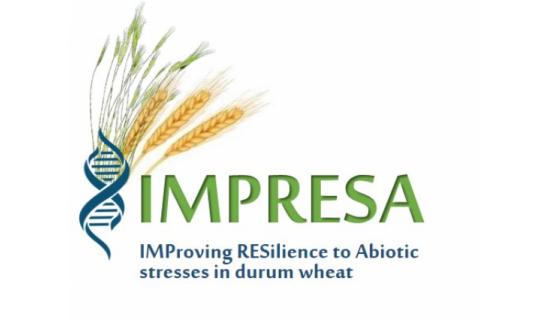Project IMPRESA
IMProving RESilience to Abiotic stresses in durum wheat: enhancing knowledge by genetic, physiological and “omics” approaches and increasing Mediterranean germplasm biodiversity by crop wild relatives-based introgressiomics
Sustainable production and management of biological resources are key agricultural drivers within a changing world. Agriculture needs to improve crop performance and to address environmental challenges so as to ensure adequate food supply whilst safeguarding the environment.
This rationale definitely applies to durum wheat (DW), strategic commodity for Italy (Coordinator) and staple crop for several other Mediterranean, including North African and Near-Eastern, countries (e.g. Tunisia, Algeria and Turkey, Partners). The concept for IMPRESA is to integrate extensive trials of genetic resources, under natural and induced stress conditions, with intensive study of mechanisms and genes that increase DW performance under abiotic stress to improve knowledge of the processes contributing to drought, heat and salinity tolerance, and to set-up solid bases to exploit the new knowledge through the breeding pipeline.
As domestication and breeding processes have shrunk natural crop diversity, IMPRESA aims to widen DW genetic basis by resorting to wild wheat relatives (WWRs), naturally adapted to stressful environments, hence valuable sources for tolerance genes. DW-WWR materials include DW introgression lines already engineered with small alien chromosome segments enhancing yield-related traits of potential relevance also under abiotic stress conditions, and synthetic amphiploids involving various wild genomes from which further novel target traits can be identified and transferred into country-adapted DWs via “introgressiomics” strategies.
Materials will be subjected to controlled stresses and extensively phenotyped at the plant (physiological, yield-related traits) and molecular (metabolites, transcripts, genes) levels. For effective trans-national breeding exploitation, genetic, physiological and “omics”-derived information will be validated in different environments and cropping systems (minimum tillage, bed planting) of participant countries.
Link: https://www.agricultura.it/programma-prima-2019/
Facebook https://www.facebook.com/Impresa-project-105051864937254

